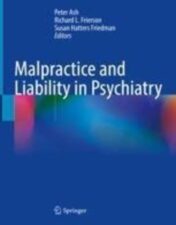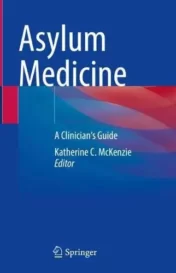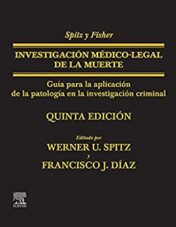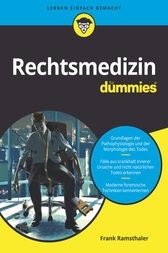Discover the Best Forensic Medicine Books to Enhance Your Knowledge
Discover the Best Forensic Medicine Books Now!
Are you looking for the best books on forensic medicine? Look no further! At SurgeryBook.net, we have a wide selection of books that cover all aspects of forensic medicine. From criminalistics to pathology, our books provide comprehensive coverage of the field. Whether you’re a student or a professional, you’ll find the perfect book to help you understand and apply the principles of forensic medicine. Our books are written by experts in the field and feature up-to-date information and research. Plus, they come with helpful illustrations and diagrams to make learning easier. So don’t wait any longer – explore our selection of forensic medicine books today and start your journey towards becoming an expert in the field! Visit SurgeryBook.net now!
Forensic Medicine Books
Key Cases in Forensic and Criminological Psychology 2021 Original PDF
Forensic Medicine Books
Forensic Medicine Books
Handbook of Forensic Medicine, 2nd Edition 2022 epub+converted pdf
Forensic Medicine Books
Handbook of Forensic Medicine, 2nd Edition 2022 Original PDF
Forensic Medicine Books
Forensic Science: Fundamentals & Investigations, 3rd Edition 2020 Original PDF
Forensic Medicine Books
Textbook Of Forensic Medicine & Toxicology: Principles & Practice, 6th Edition 2014 Original PDF
Forensic Medicine Books
Forensic Pathology of Asphyxial Deaths 1st Edition 2022 Original pdf
Forensic Medicine Books
Forensic Medicine Books
Forensic Medicine Books
Forensic Medicine Books
Key Cases in Forensic and Criminological Psychology 2021 EPUB & converted pdf
Forensic Medicine Books
Forensic Medicine Books
Forensic Medicine Books
Forensic Medicine Books
Forensic Medicine Books
Forensic Medicine Books
Forensic Medicine Books
Forensic Medicine Books
Manual Nonfatal Strangulation Assessment (Forensic Learning Series) 2017 Original pdf
Forensic Medicine Books
Forensic Medicine Books
Medical Response to Adult Sexual Assault 2e 2019 Original pdf
Forensic Medicine Books
Postmortem Toxicology Challenges and Interpretive Considerations 2019 Original pdf
Forensic Medicine Books
POWER Police Officer Wellness, Ethics, and Resilience 2020 Original pdf
Forensic Medicine Books
Practical Aviation Security Predicting and Preventing Future Threats 2017 Original pdf
Forensic Medicine Books
Forensic Medicine Books
Preventing Domestic Homicides Lessons Learned from Tragedies 2020 Original pdf
Forensic Medicine Books
Forensic Medicine Books
Forensic Medicine Books
The Psychology and Sociology of Wrongful Convictions Forensic Science Reform 2018 Original pdf
Forensic Medicine Books
Introduction
Are you looking to enhance your knowledge in forensic medicine? Look no further! Discover the best forensic medicine books to help you gain a better understanding of this fascinating field. From textbooks to reference guides, these books provide comprehensive coverage of the latest developments in forensic medicine and are written by leading experts in the field. Whether you're a student or a professional, these books will give you the information you need to stay up-to-date on the latest trends and techniques.
Introduction to Forensic Medicine: A Comprehensive Guide
Forensic Medicine: A Comprehensive Guide is an essential resource for anyone interested in the field of forensic medicine. This comprehensive guide provides a thorough overview of the various aspects of forensic medicine, from the basics of criminal investigation to the latest advances in DNA analysis and other forensic technologies. It covers topics such as crime scene investigation, autopsy techniques, toxicology, pathology, and more.
The book begins with an introduction to the history and development of forensic medicine, including its role in criminal justice systems around the world. It then moves on to discuss the fundamentals of criminal investigation, including evidence collection, interviewing witnesses, and analyzing physical evidence. The book also covers the use of modern technology in forensic investigations, such as DNA analysis, fingerprinting, and ballistics.
In addition to providing an overview of the field, Forensic Medicine: A Comprehensive Guide also offers detailed information on specific topics. For example, it includes chapters on forensic anthropology, which examines human remains to determine identity; forensic entomology, which studies insects to determine time of death; and forensic odontology, which uses dental records to identify individuals. It also covers the use of forensic psychology and psychiatry in criminal investigations.
The book also provides an in-depth look at the legal aspects of forensic medicine, including the rules of evidence, court procedures, and the rights of defendants. It also discusses the ethical considerations involved in forensic investigations, such as the need to protect the privacy of victims and witnesses.
Overall, Forensic Medicine: A Comprehensive Guide is an invaluable resource for anyone interested in the field of forensic medicine. It provides a comprehensive overview of the subject, as well as detailed information on specific topics. Whether you are a student, professional, or just curious about the field, this book is sure to provide you with the knowledge you need to understand the science behind criminal investigations.
Forensic Pathology: Principles and Practice
Forensic Pathology: Principles and Practice is a comprehensive guide to the field of forensic pathology. It provides an in-depth look at the principles and practice of this important medical specialty. The book covers topics such as the history of forensic pathology, the role of the forensic pathologist, autopsy techniques, and the interpretation of evidence. It also includes detailed information on the legal aspects of death investigation, including the roles of the coroner and medical examiner.
The book is divided into four sections. The first section provides an overview of the field of forensic pathology, including its history, scope, and importance. It also discusses the ethical considerations involved in the practice of forensic pathology. The second section focuses on the principles and practice of forensic pathology, including autopsy techniques, tissue sampling, and the interpretation of evidence. The third section covers the legal aspects of death investigation, including the roles of the coroner and medical examiner. Finally, the fourth section provides an overview of the various types of forensic pathology, including toxicology, histology, and molecular pathology.
Forensic Pathology: Principles and Practice is an invaluable resource for anyone interested in learning more about this fascinating field. It provides a comprehensive overview of the principles and practice of forensic pathology, as well as an in-depth look at the legal aspects of death investigation. This book is an essential reference for medical professionals, law enforcement personnel, and students of forensic science.
Forensic Toxicology: Principles and Concepts
Forensic toxicology is a branch of forensic science that deals with the detection and identification of drugs, poisons, and other toxic substances in biological specimens. It is used to determine the presence or absence of a drug or poison in a person's body, as well as the amount present. Forensic toxicology is an important tool for law enforcement, medical examiners, and other professionals who investigate deaths and other criminal activities.
The principles and concepts of forensic toxicology are based on the scientific method. This involves the collection and analysis of evidence from a variety of sources, including laboratory tests, interviews, and physical examinations. The evidence is then evaluated to determine the cause of death or injury.
Forensic toxicologists use a variety of techniques to detect and identify drugs and poisons. These include chromatography, spectroscopy, immunoassays, and mass spectrometry. Chromatography is used to separate and identify different components of a sample, while spectroscopy is used to measure the concentration of a substance in a sample. Immunoassays are used to detect the presence of specific drugs or toxins in a sample, while mass spectrometry is used to identify the molecular structure of a substance.
Forensic toxicologists also use a variety of methods to interpret the results of their tests. These include statistical analysis, pharmacokinetic modeling, and toxicokinetic modeling. Statistical analysis is used to determine the probability of a particular result, while pharmacokinetic modeling is used to predict how a drug or toxin will be absorbed, distributed, metabolized, and eliminated by the body. Toxicokinetic modeling is used to predict the effects of a drug or toxin on the body.
Forensic toxicology is an important tool for law enforcement, medical examiners, and other professionals who investigate deaths and other criminal activities. It is used to determine the presence or absence of a drug or poison in a person's body, as well as the amount present. By using the principles and concepts of forensic toxicology, investigators can accurately determine the cause of death or injury and bring those responsible to justice.
Forensic DNA Analysis: Theory, Technology, and Practice
Forensic Anthropology: An Introduction to the Field and Its Applications
Forensic anthropology is a field of study that combines the science of physical anthropology with the law. It is used to identify human remains and to help solve criminal cases. Forensic anthropologists are trained to analyze skeletal remains in order to determine the age, sex, ancestry, and other characteristics of an individual. They can also provide information about how the person died, such as whether it was due to trauma or natural causes.
Forensic anthropologists use a variety of techniques to analyze skeletal remains. These include examining the bones for signs of trauma, analyzing the teeth and other features to determine age and sex, and using DNA analysis to identify the individual. In addition, they may use X-rays, CT scans, and other imaging techniques to examine the bones in detail.
Forensic anthropologists are often called upon to assist in criminal investigations. They can help to identify victims of homicide, mass disasters, and other crimes. They can also provide evidence in court cases by testifying about their findings.
Forensic anthropologists may also be involved in archaeological excavations. They can help to identify ancient remains and provide insight into past cultures. This type of work is often done in collaboration with archaeologists and other experts.
Forensic anthropology is an important field of study that has many applications. It can help to solve crimes, identify victims, and provide insight into past cultures. Those interested in pursuing a career in forensic anthropology should have a strong background in physical anthropology, biology, and anatomy. They should also be familiar with the legal system and have excellent communication skills.






























